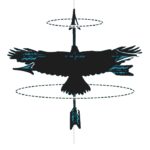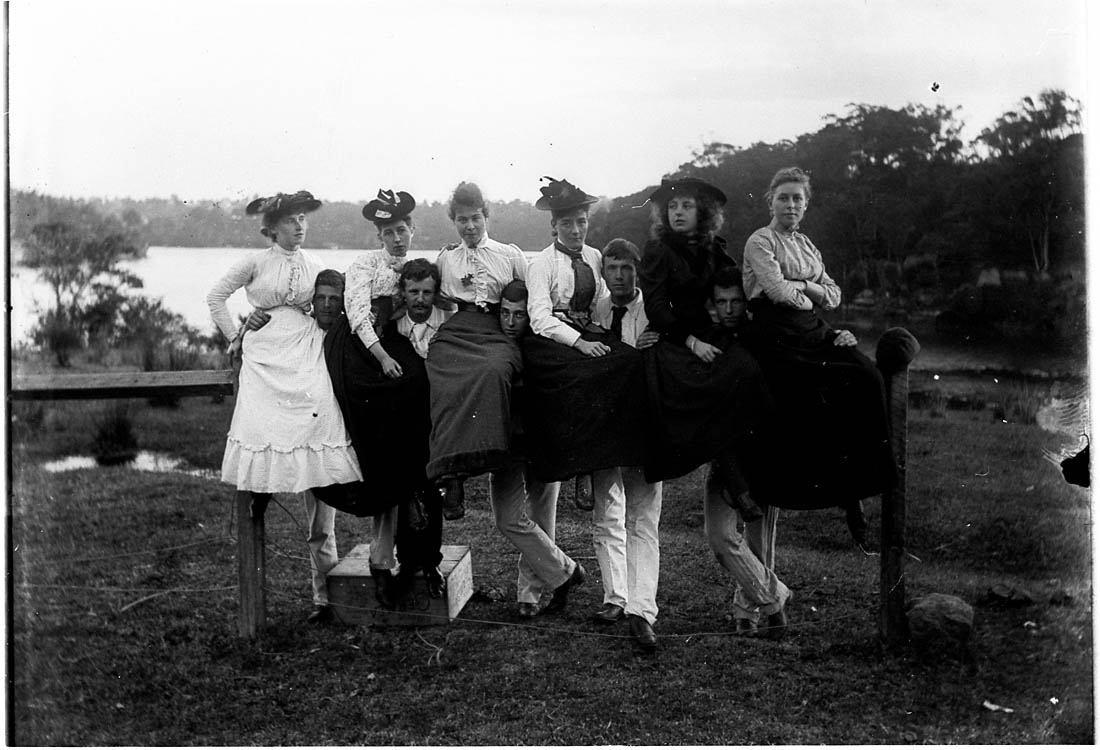We came in droves. We all wore black, pulled stockings over hard, winter skin. We filled out forms requesting personal days, left sub plans on our classroom tables, locked the desk drawers containing our expensive cream. We smeared concealer under our eyes with index fingers, plucked stray hairs from beneath our brows and above our lips, found our fancy coats in backs of closets and threw out yellowed receipts from their pockets. We put one earring in each ear and asked our husbands: Which? We changed our shoes. We changed our earrings. We shoved bananas in our purses, changed our shoes again.
We filled our tanks with gas, unleaded, ignored our low-tire lights, picked up old friends we hadn’t seen since Trivia nights and Baileys on the rocks. We kept the radio low. You can leave him, we told each other. Is she still a cunt? we asked. We left our snow hats in the car and parallel parked and put our phones on silent and wrote our names in the big brown book, peered into the bin with yarmulkes piled like pancakes. We grabbed each other, wishing our hugs had more to give, but pulled close anyway and held and held until our fingers almost bruised each other’s backs.
We pressed our bodies into benches, all coconut and mango and Johnson & Johnson and spice. The rabbi spoke of life and death; we rolled our eyes. Is this the best he could do? And when we laughed, we saw the etches in each other’s skin, the yellow in each other’s teeth. We didn’t try to mind our business, didn’t try to look away. We imagined our best friend’s father limp and splayed inside that big dark box, wondered if his hands were folded, if his suit had tags. Some of us looked down and prayed. Some of us stared straight into the bags between our legs believing in nothing but earth and molten lava, space and wasted time.
For all these years, even though we knew, we never came. We never came the nights he lay awake, alone, the bottles—glass and plastic—filled and empty and filled again. We left him with his cats throwing litter from their paws and a piano we could have played to fill the silent halls.
But how could we have come? We had work and concert tickets and Brazilian wax appointments, we had MRIs and physical therapy and Thanksgiving, we had cakes to bake from scratch and who knew there was so much involved? The kids had lessons, swimming, so awful, they came from the pool as dripping ticking time bombs stuck with chlorine and clattering teeth; we balled their suits and left them to soak our purses’ corners. We waited in lines for hours at pharmacies and post offices and airport security where they made us empty our pockets again and again. Walk back through. Open our bags. Underwear everywhere, some new, some old and tattered. We’re only human.
And our tire lights were on, we needed air.
Oh how awful, we told each other over the phone, when we heard he was walking alone on Route 59 with Bottle King bags or takeout food in stained sweatpants. We wondered who had seen him, who had swerved or glanced in rearview mirrors and shaken their heads. We asked about each other’s kids and hung up to call our neighbors to borrow a cake pan, because how would we store this, now that it was done?
Even though he held our hair back when we puked in his empty pasta pot on a school night when we damn well should have been in our own homes, even though we sucked down Parliaments in the backseat of his Toyota and he closed the windows because he liked the smell, even though we left our bowls in his sink and ran upstairs to call our boyfriends and iron our hair and line our lips as he washed our spit-stained silverware over Billy Joel—we only had to tap his sliding door once and he would always drop the dishes and take a towel and dry his hands and let us in—he’d always let us in these past six years, with that one tap—even though; we never came.
We waited until he’d gone, and then we came in droves. We followed one by one down highways and backroads with hazards blinking, chewing our Nicorette and cursing the strangers in pickup trucks who cut into our caravan. Come on! We yelled. Don’t they see the lights? We wore all black, and packed ourselves around the mound of dirt and passed a shovel and threw some in; we shivered and rolled our eyes knowing how he’d have laughed at this pile of nothing. We stood in Doc Martens and heels and expensive-looking knee-high boots from Payless and wished we’d worn warmer jackets and joked about our own deaths: you better be bowing on your knees to me! we said, pretending this thing called fate was only for others.
We missed him, but we’d missed him. We’d waited too long, but we just didn’t have time.
We left in droves. We all went home and closed our blinds and checked our emails, their little blue circles blinged and dinged, we washed our faces, mascara streaked along the cloth. Our tiny daughters came to our bedsides with electric toothbrushes spitting pink paste into our eyes. Can I show you my handstand? They asked. We told them no. We sighed, and sighed, and sighed, then fell asleep and sweat beneath our sheets, with all that was to come curled in the cracks of us, just lying in wait.
—
Emily James is a teacher and writer in NYC. Her recent work can be found in
Hippocampus,
Atticus Review,
The Rumpus,
Mutha Magazine,
Pigeon Pages,
JMWW Journal, among others. She is the recipient of the 2019 Bechtel Prize from Teachers and Writers’ Magazine. You can find her online at
www.emilysarahjames.com and tweet her
@missg3rd.
 Artwork by: State Library of New South Wales
Artwork by: State Library of New South Wales

This shortcode LP Profile only use on the page
Profile Artwork by: State Library of New South Wales
Artwork by: State Library of New South Wales
